Jeff sat on a bar stool at the front of the room. He had no slides, no props, just sat and talked. Within minutes, he had everybody in the room on the edge of their seats eagerly nodding and ready to follow him wherever he went. None of us in the room had met Jeff before. In fact, none of us had a clue who he was. This quiet, unassuming man simply walked to the front and sitting on the bar stool began to speak and captivated everyone. Jeff shared why some adverts worked, and some fell flat. How some adverts tapped universal appeal, and others neglected to do so. The good news is that you don’t need to spend millions of dollars on creating a fantastic TV advert to influence people. The great news is that you can easily tap into the four universal appeals. And I'll come to those four universal appeals in a moment. You'll remember in the triangle of influence that the motivation to change is the result of the evaluation of the personal benefits gained and the personal cost in the resources required to achieve a specific outcome. Whether that outcome is buying a new toothpaste or a new car, giving our time to serve in a soup kitchen or sharing our wisdom with a stranger. We weigh up what we get from the action and what it costs us. We will then be motivated to act when our perceived benefits outweigh our perceived cost.
Influence is maths. When the perceived value is greater than the perceived cost, we are motivated to act on the change.
If you know what I am likely to perceive as beneficial and what I perceive as costly, then you should find it easier to influence me. Influencing someone you know well When we know someone very well, we can influence them more easily. For example, if I want to go to a particular holiday destination with my wife, and she wants to go elsewhere, I might emphasise all the aspects of the type of holiday she desires (honestly) regarding my preferred destination. I might lay on some evidence to add credence to my interpretation such as photos, TripAdvisor recommendations and so on. If I want to buy a particular car model, and she would prefer another, I might focus on specific qualities of my chosen car that I know will appeal to her. It's not manipulation; it's just a conversation. It's something we all do, every day. We will sway or steer others towards our preference. We are in a position of influence every time someone allows us to communicate with them. Most of the time, we are unconsciously influencing entirely based on our personal bias. But that's selfish! Yes, you’re right. I am. So are you. So is the person beside you. I am, and you are. Even when someone is apparently altruistic, the reality is that they get something valuable personally from being so. What if I don’t know the other person well, how do I influence them? People are more easily influenced by people who show empathy for their situation and can be trusted. But more than that: people will do anything for those who encourage their dreams, allay fears, justify their failings, or help them throw rocks at their enemies. Some of the most effective and powerful ways of influencing appeal to these four universal motivators: Encourage their dreams, allay their fears, Justify their failings and helping them throw rocks at an enemy. 1. Encourage their dreams
If a genie gave you 3 wishes, what would you ask for?
Every single person I have ever met has dreams. They want to achieve something in their life, they may not know exactly what that is, but it is better than whatever they have achieved thus far in life. To influence someone, you could encourage their dreams. That the benefit, they will attain moves them towards their dreams. You might be encouraging the dreams of your child to get into a great university if they study hard, or more relevant perhaps, the new iPad you will buy them if they get an A. You could be encouraging someone to diet or exercise by communicating how good they will look and feel (and hence be more attractive.)


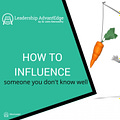








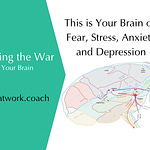
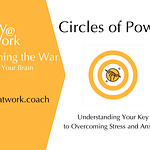
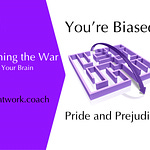
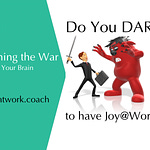
LA 021: How to influence someone you don’t know well—4 universal appeals